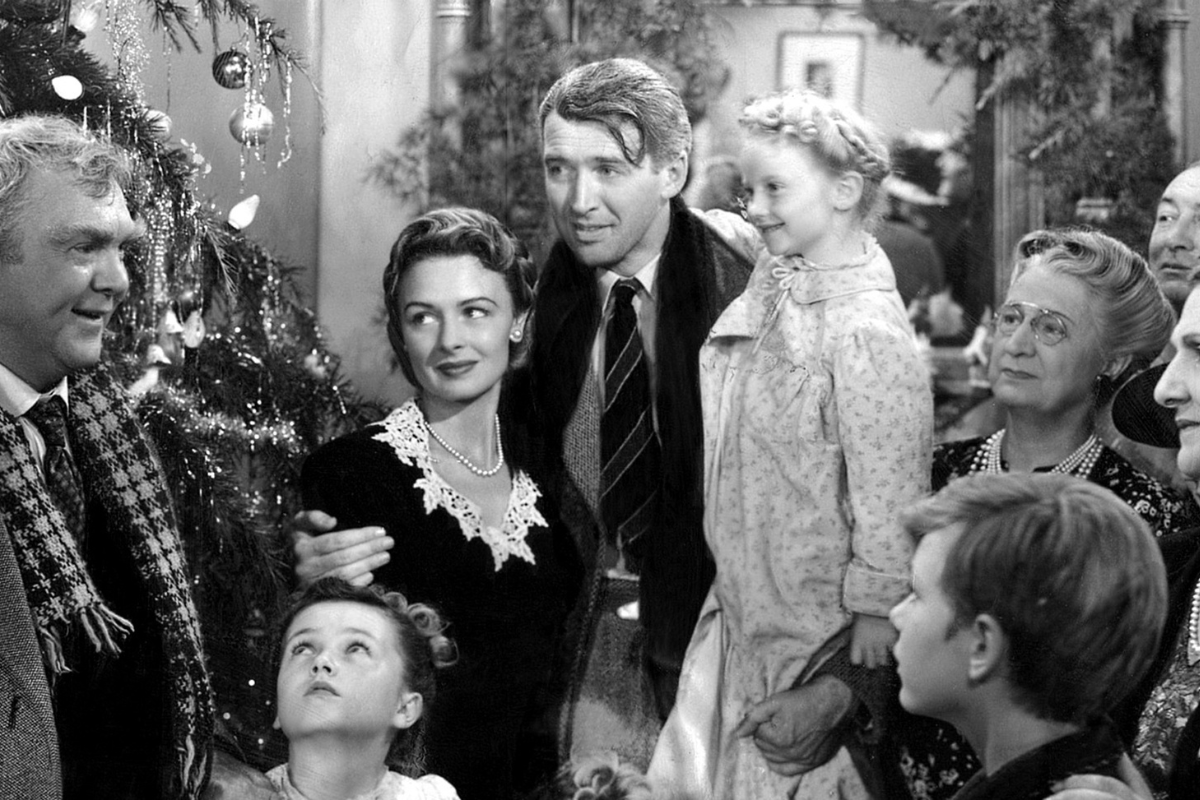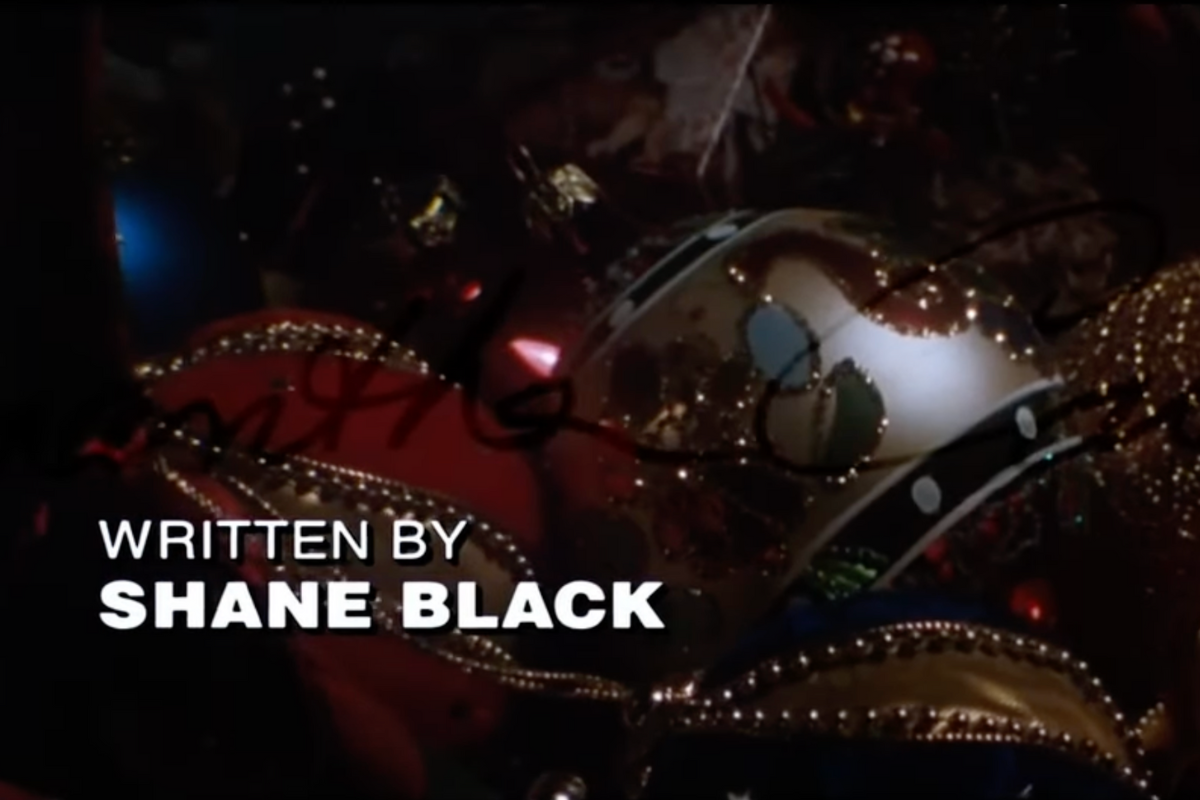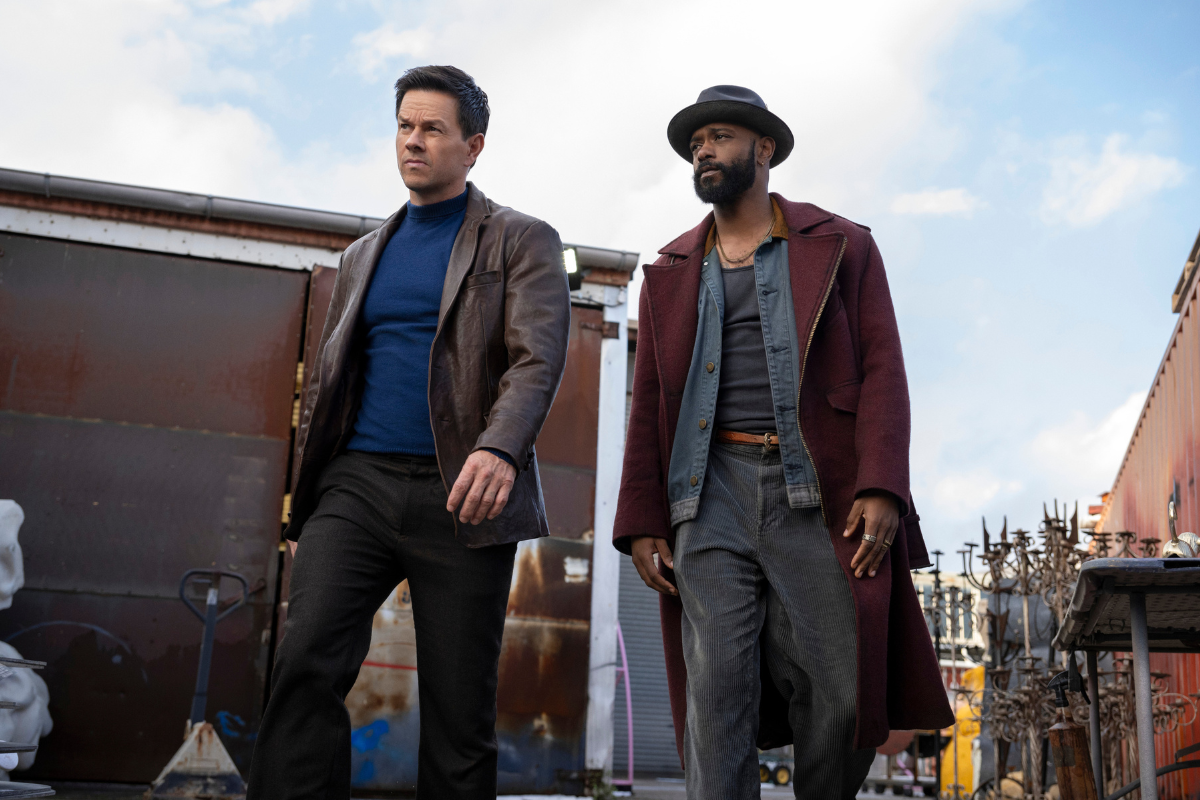Breaking & Entering: Writing Is Decision Making! Here’s How to Make Great Decisions
Become a decisive writer! Barri Evins explains why small decisions in scripts make a big difference, with 7 simple rewriting techniques to impress readers.
I recently read an intriguing article, “Decision Fatigue Is Real – And It Might Be Why You’re Feeling Overwhelmed.” This was a wellness piece in Refinery29 by Nina Miyashita but it struck a cord in me, not just in terms of life – which somehow seems ever more overwhelming these days – but in terms of writing.
Writing is decision making.
Easily hundreds of thousands of decisions go into creating a script. I’m not talking about the idea – although I believe "What to write next?” is the most important decision you will ever make – I’m talking about the countless choices involved in getting it out of your head and onto the page in a way that not merely makes sense to someone else, but that conveys your vision and engages the reader, making them eager to keep reading. That's a lot of pressing questions that need great answers.
Indecisive Writing
Readers can tell quickly tell if we are in the hands of an indecisive writer. One dead giveaway is that they write too much. Another is that they write too little. In either case, it is generally a sign of a writer not knowing what they want to say.
While the idea of an “acceptable” page count is relentlessly hammered home, what actually counts more are words, sentences, paragraphs. When a script is wonderfully written, honestly, we don’t care as much about the number of pages. I’d rather read a focused and compelling 118, than slim and thin 88 pages that are a struggle to grasp. It takes longer, but I’ll be having such a vastly better time that it simply won’t matter.
I’m always quick to admit that I am a proud storyaholic, but after that, I’m a wordophile. Words fascinate me because the difference between supposed synonyms has a huge impact in the seemingly subtle connotations. The difference between the right word and the not quite right word can be vast. I’ve confessed to this before in one of my favorite articles called “Use Your Words,” and since I’ve decided to say less here, I’ll let you read it for yourself. Better yet, here’s what a writer who shared my obsession had to say:
Craftsmanship in writing lies in the mastery of the tricks and manipulations, the methods at our disposal, that render intention and passion visible to others. It’s at the heart of why a writer writes. If you don’t get off on how moving a word from here to there alters meaning, how this word is better than that word, how punctuation can lead the mind’s voice to understanding, then you shouldn’t be here. Writing is too hard, the life of the writer too peculiar, to pursue if you don’t love the craft, the game, of moving words around on the page. If you don’t love composition.
Guy Gallo, The Screenwriter’s Compass, screenwriter of Under the Volcano
Words count a great deal. You may have a rush of inspiration and spew it all out onto the page, that’s fine. But then go back and work through each and every sentence, word by word, to ensure it is conveying what you truly intend.
At the heart of indecisive writing is the writer who gives us too much or too little because they don’t yet have clarity on their story. When you know the target, you can take aim and will have a far better chance at striking the bulls-eye. In storytelling, knowing where you’re headed means being clear on both what the narrative builds toward and on what the story is about.
The answer to “Where are you headed?” is your plot.
The answer to “What is the story about?” is your theme.
Only when you can answer those two questions can you ensure every little decision fully supports the story. That’s your 10-second commercial for outlining, in whatever form it takes for you. You can find my thoughts on outlining for both structure and meaning here, but I can tell you, that as relatively brief as this article is, I outlined it after I jotted down a working title and few ideas about the topic, and before I began writing.
Knowing your destination is key to getting there. Without it, you’re forced to guess. It will inevitably be harder and take you longer to find your way.
Decisive Writing
If I were to sum up the most notable quality of decisive writing in a word, it would be deliberate. It is both lean and impactful because every choice is intentional. Every sentence, every line of dialogue, a parenthetical, the use of a dash versus ellipses, matters. Each beat, every scene, all characters’ reactions, serve a purpose; better still, more than one.
The writing should match the story and the protagonist. It fits the tone and the genre. When the pace is fast, such as in an action sequence, sentences are short and brisk so the section reads quickly and is as exciting as if it is unfolding in real time. In a drama, there might passages where no character says what they truly mean, but what goes unspoken, the difficulty of what cannot be expressed, is gripping.
My Screenwriting Elevated online intensive seminar is designed to help writers elevate their skills and develop their voice. Because a writer with a voice possesses the most desirable characteristic the industry seeks. We discuss it. We read great screenplays from the classics to those that redefined their genres. We read passages aloud watching the scenes. We do exercises designed to help writers discover their distinctive voice.
Watch A Taste of Screenwriting Elevated here:
While you most definitely know it when you hear it, defining “the writer’s voice” is still challenging. Here’s my seven-adjective version:
A developed writer’s voice is distinctive, specific, evocative, intentional, cinematic, showcases their screenwriting strengths, and expresses their point of view.
If I were to add one more, it would be harder to define, but there is something magical about it, something we haven’t seen or heard before, perhaps it puts familiar things together in a new way, or brings dissimilar things together elegantly, such as a skillful genre mash-up.
While it takes time to develop a writer’s voice, the first step may seem like a simple one. Remember when you were a kid and nervous about fitting in? Mom said, “Just be yourself.” As usual, Mom was right.
The secret to being yourself as a writer is knowing what you do best, as well as what really matters to you. Knowing your strengths and your passions. What moves you. What you believe is important about life. What you’re good at and what you want to say. Writer know thyself.
When you are aware of the strong, central ideas that inform you as a human being, express your point of view on our world and our lives, you can choose ideas that are meaningful to you and will also speak to an audience.
I ask every pro-writer Guest Speaker at my seminar what their Personal Thematic is – and they always answer in a heartbeat. Because their journey to identify what drives them is what gained them A-Lister status. Read their fascinating replies in “Screenwriters Speak.” And discover pointers and exercises to help you uncover your Personal Thematic here.
How to Decide
I’m just offering just two words that will enable you to decide if something belongs in your script or not.
Significant and cinematic.
Is it significant to our understanding the world, the story, the character, the setting, the atmosphere, the subtext? Do we need to know this now? Think of your script as a house of cards. If you pulled out this beat, this scene, this detail or description, would it collapse? If not, then it might not be significant.
When everything is given equal significance, it is a painful read. A waiter who stops by to pour a cup of coffee, doesn’t need their exact age, height, and hair color. If you use your words to make everything seem important, you’re creating an expectation without delivering on it. As a result, we feel mislead and even cheated. Deft setups with payoffs are immensely satisfying to our story-loving minds. Thus the principle of Chekov’s Gun:
Remove everything that has no relevance to the story. If you say in the first chapter that there is a rifle hanging on the wall, in the second or third chapter it absolutely must go off. If it’s not going to be fired, it shouldn’t be hanging there.
Anton Chekov, playwright and short story writer whose work influenced the medium
Is it cinematic? Are you telling or are you showing? Telling leans on prose to convey what characters are thinking and feeling, and easily slides into insignificant information that never makes it to the screen. As they say, it’s moving pictures. If you’re yearning to use the omniscient author’s voice, by all means, write a novel. But in a script, it makes readers think you haven’t truly mastered the craft of screenwriting.
It’s easy to confuse cinematic writing with literally calling the shots, but that’s not your job. If something is significant, draw our attention to it with the words you choose to describe it, not the camera angle.
When rewriting, ask yourself these questions:
Is there a phrase that externalizes characters’ inner thoughts and feelings visually?
- Can I say that in fewer words?
- Can I say it in fewer words and arouse the reader's feelings?
- How can I put the reader in the shoes of my hero, so the read is experiential?
Focusing on significant and cinematic – conveying what is important through visuals –engages readers by activating their emotions. Writing that conveys what is significant through visuals can literally make our hearts pound, our pulse race, our breath quicken. You can move us to laughter, or tears, or leave us thinking about the resonant meaning of your story long afterwards. Read more on the power of subtext and discover how to use it in your writing.
One of my favorite writing teams, David Diamond and David Weissman, wrote a terrific book on screenwriting, Bulletproof: Writing Scripts That Don’t Get Shot Down. It’s comprehensive, practical, and packed with words of wisdom. It inspired me to do my first and only book review and, as an unabashed Screenwriting Fangrrl, they are high on my list. Check out the sometimes embarrassing inside scoop on meeting my writer crushes here.
I was thrilled and delighted to interview The Davids. In fact, I didn’t want to leave. So I had enough material for a Part One on their pointers for a successful career, and a Part Two on elevating your writing!
When discussing description, Diamond and Weissman use the phrase “meaningful specificity,” a nugget of wisdom that nails it:
Don’t busy up your screenplay trying to do the job of other departments. If you’re not the director or cinematographer, don’t call the shots. It’s important to be specific about elements that add richness and texture to your characters and story. But it’s important to know the difference between meaningful specificity and stepping on the toes of your director, production or costume designer, or composer. Include the details that impact your characters and story and that help to capture the tone of your script… They know their jobs better than you do. Let them do it. Keep the action tight. Keep it moving. Continue to draw the reader’s eye from the action to the dialogue, and before they know it, they’ll have read through to the end of your script. Mission accomplished!
Tricks of The Trade
I couldn’t leave you without a few useful tricks you can apply when rewriting to guide you to making the best possible choices. Be on the lookout for my pet peeves that wind up underlined in red in the annotated drafts my mentorship clients receive.
- Reread one scene at a time. Is it an essential playing card that serves a purpose in either advancing the narrative, or revealing character, or in the best case scenario – does both? Does it start as late as possible? Do you get out as quickly as possible? Does it have a button at the end? That great line wraps it up or the character reaction that hits it home.
- Read in reverse, from the last scene to the first. It disrupts our normal thought process and forces you to pay attention to the moment. Be honest, don’t you always reread from Page One? It’s why some scripts start strong and then fall off.
- Be on the lookout for word repetition. We tend to have words and phrases that we lean on. And the more you repeat, the less we pay attention.
- Look for “widows” aka “orphans.” That’s a line that has only one word. First, it’s wasted space in your screenplay that adds up when you’re looking at length. Second, it is begging for you to rewrite the sentence, paragraph, or line of dialogue, and make it better in the process. It creates an opportunity for you to be extra choosy with your words and add impact at the same time.
- Not sure if you’ve got the exact right word? That’s why the brilliant Pater Mark Roget gave us the priceless gift or the thesaurus. It’s on your computer. Use it.
- Strive for a range of emotional reactions. Again, we turn to the familiar, but it literally turns off our brains, and we tune out. Even a repressed character has to work at stuffing down their emotions, and it shows. If you write “He looks down,” again and again, then in the moment where it counts, where he cannot meet the eyes of the woman he is falling in love with, we will have long since grown numb.
- Struggling to convey subtext – the expression, body language, or behavior that speaks volumes? Check out the brilliant The Emotion Thesaurus: A Writer's Guide to Character Expression by Becca Puglisi and Angela Ackerman offers countless suggestions for each mood to help you craft unique and compelling emotion through showing.
The only trick here is altering your thinking by changing your rewriting process. But this enables you to ask the questions that lead to making great writing decisions.
If you have tips of your own, please share in the comments!
Learn more about the craft and business of screenwriting and television writing from our Script University courses!
Barri Evins draws on decades of industry experience to give writers practical advice on elevating their craft and advancing their career. Her next SCREENWRITING ELEVATED online seminar with 7 monthly sessions plus mentorship will be announced in 2025. Breaking & Entering is peppered with real life anecdotes – good, bad, and hilarious – as stories are the greatest teacher. A working film producer and longtime industry executive, culminating in President of Production for Debra Hill, Barri developed, packaged, and sold projects to Warners, Universal, Disney, Nickelodeon, New Line, and HBO. Known for her keen eye for up and coming talent and spotting engaging ideas that became successful stories, Barri also worked extensively with A-List writers and directors. As a writer, she co-wrote a treatment sold in a preemptive six-figure deal to Warners, and a Fox Family project. As a teacher and consultant, Barri enables writers to achieve their vision for their stories and succeed in getting industry attention through innovative seminars, interactive consultations, and empowering mentorship. Follow her on Facebook or join her newsletter. Explore her Big Ideas website, to find out about consultations and seminars. And check out her blog, which includes the wit and wisdom of her pal, Dr. Paige Turner. See Barri in action on YouTube. Instagram: @bigbigideas X: @bigbigideas







